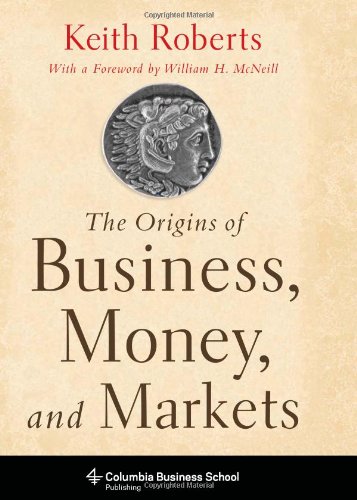

Most ebook files are in PDF format, so you can easily read them using various software such as Foxit Reader or directly on the Google Chrome browser.
Some ebook files are released by publishers in other formats such as .awz, .mobi, .epub, .fb2, etc. You may need to install specific software to read these formats on mobile/PC, such as Calibre.
Please read the tutorial at this link. https://ebooknice.com/page/post?id=faq
We offer FREE conversion to the popular formats you request; however, this may take some time. Therefore, right after payment, please email us, and we will try to provide the service as quickly as possible.
For some exceptional file formats or broken links (if any), please refrain from opening any disputes. Instead, email us first, and we will try to assist within a maximum of 6 hours.
EbookNice Team

Status:
Available4.6
36 reviewsUnderstanding the origins of business is fundamental to grasping modern life, yet most historians look no further than the nineteenth century for their narratives. While the industrial revolution profoundly shaped business practice and much of the corporate organization we recognize today, the full sweep of business history actually begins much earlier, with the initial cities of Mesopotamia. In the first book to describe and explain those origins, Roberts travels back to the society of ancient traders and consumers, recasting the rise of modern business and underscoring the parallels between early and modern business practice.
Roberts's narrative begins five thousand years ago in the Middle East, explaining why prehistoric tribes had no "business." He describes the lack of material conditions and conceptual framework that made such an interchange impossible, and then locates the origins of business in the long distance trade of ancient Mesopotamia, especially within its slave trading, retailing, and financing practices. He maps the rise of modern models of currency, markets, and business in Greece, along with the emergence of banking, mercenaries, and reliable small coinage, and he follows the conquests of Alexander the Great, which brought these advances to the Mediterranean world and the Middle East.
With the growth of agribusiness, Romans developed public contracting, corporations, and even shopping malls, yet in the third century A.D., business mysteriously, virtually disappeared. In each of his chapters, Roberts portrays the major types of business thriving within a certain era and the status, wealth, and treatment of business owners, managers, and workers. He focuses on issues of business morality, the nature of wealth, the role of finance, and the development of public institutions shaping business possibilities, advancing an absorbing account of a long neglected history.